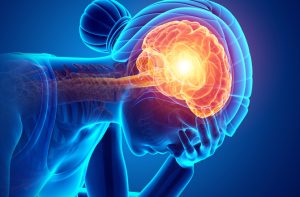Headaches is one of the most common and growing reasons for referrals to a neurology clinic. Childhood migraine is common. Migraine affects 9.1% of children, as contrasted with 6% of men and 18% of women. In general, after puberty, girls are affected roughly 3-fold more than boys.
Our Headache clinic provides specialised diagnoses and migraine relief plan for children and teenagers.

We will help diagnose different type of headaches, such as:
- Migraines
- Childhood episodic syndromes associated with migraine
- Recurrent gastrointestinal disturbance as in cyclical vomiting syndrome and abdominal migraine.
- Benign paroxysmal vertigo
- Benign paroxysmal torticollis
Other headache syndromes:
- Vestibular Migraine
- Alice in Wonderland
- Hemiplegic Migraines
- Cluster Headaches
- SUNCT
Before your visit
Ahead of the clinic you will be asked to fill in questionnaires to get as much as possible information regarding your child’s headache, lifestyle, stress levels and previous history and medications.
Your child will be seen next by one of our consultants. They will work with you to create a bespoke treatment plan that helps reduce your child’s headache pain. The plan will meet the needs and preferences of both you and your child.
We will discuss with you appropriate investigations such as bloodwork and MRI.
Available Personalised treatments plans may include:
- Acupuncture – placement of very small needles by certified medical acupuncturist*.
- Aromatherapy – with essential oil patches *.
- Greater occipital nerve blocks – an injection of numbing medications to break the cycle of headaches.
- Botox® – a series of injections for young adults with chronic migraines who didn’t respond to other treatments*.
- Cefaly® – an external trigeminal nerve stimulation (e-TNS) device that attaches to the forehead and sends electrical signals to treat and prevent migraine headaches.
- IV infusions – including fluids and other medications such as migraine-specific DHE, ketorolac, magnesium.
- Nutraceuticals – products from food sources, such as riboflavin or magnesium.
- Prevention medications – used daily to prevent headaches.
- Rescue medications – specifically designed to acutely stop a headache.
- Sphenopalatine Ganglion (SPG) block – treatment that applies numbing medicine in the back of the nose to block pain and reduce headache.
* Referred externally to other colleagues/providers
Find out how to get headache relief by lifestyle changes visiting Headache Relief Guide on our useful links page.

